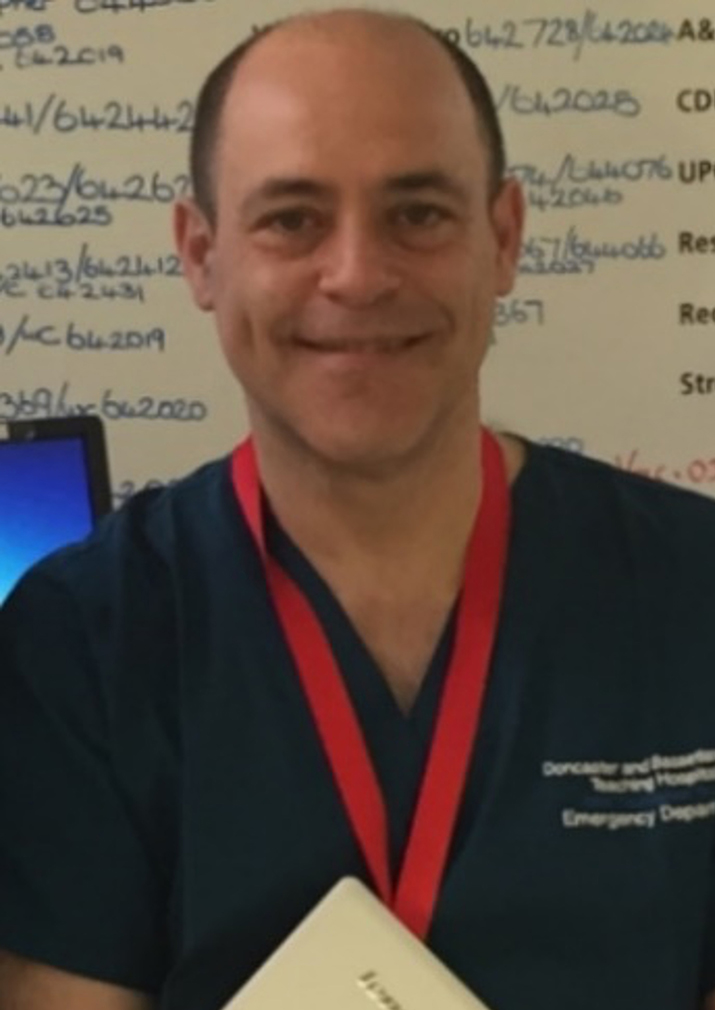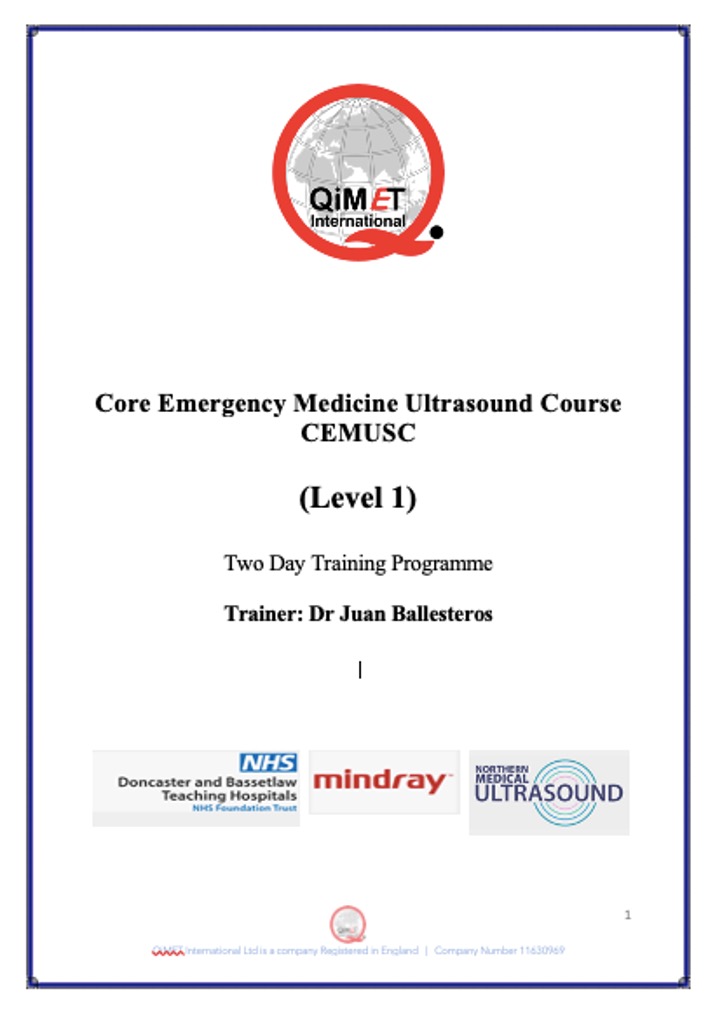
The two day Core Emergency Medicine Ultrasound Course (CEMUSC) training programme prepares you for Core (Level 1) Competency in Emergency Medicine Ultrasound. The QiMET International training programme has been designed to blend online learning and small group experiential teaching with direct access to plenty of ultrasound practice.
The two-day workshop will be delivered as:
Day 1 – an online theory day through an online learning platform.
Day 2 – Direct online ultrasound experience and assessment of competence.
A Certificate of Completion of the course will be provided if all satisfactory components of the course have been met and these are:
i. Theory Day 1 – all 6 areas, Indications, Physics, Image Acquisition, FAST, Aortic Assessment, Vascular Access have been learnt
ii. Evidence provided of scans carried out
iii. Satisfactory sign off for practice after hands on instruction and supervised practice, documented in an Assessment Sheet
After completion of this two day programme, there may be an opportunity to undertake supervised practice in the workplace to complete Level 1 Competency in Ultrasound. However this will need to be negotiated separately and is not a guaranteed outcome of this two day CEMUSC programme.
The aim of this two-day workshop is to support you as a doctor in Emergency Medicine to become competent in Emergency Medicine Ultrasound at Level 1 in:
– Focussed Assessment of the Abdominal Aorta (AAA)
– Focusses Assessment with Sonography in Trauma (FAST)
– Focused Echocardiography in Life Support (ELS)
– Ultrasound Guided Vascular Access (VA)
The course will support you to develop core knowledge to underpin your competency and preparation for practice in in Level 1 Ultrasound and by the end of the two day training programme you will be able to:
– Recognise and differentiate normal anatomy and pathology
– Diagnose common abnormalities within certain organ systems
– Recognise when a referral for a second opinion is indicated
– Understand the relationship between ultrasound imaging and other diagnostic imaging techniques
After a period of sustained and supervised practice in the Emergency Department (3 – 6 months) you will be able to
– Perform common examinations safely and accurately


NAME: Dr Juan Ballesteros
DESIGNATION: Consultant in Emergency Medicine
INSITITUTION/ ORGANIZATION
Emergency Department, Doncaster Royal Infirmary, Doncaster and Bassetlaw Teaching Hospitals
QUALIFICATIONS: LMS (Madrid), FMFSEM (Edinburgh), PgD EMUS (Teesside), FRCEM (London)
SPECIALTY:
– Emergency Medicine
– Instructor and Course Director in Advanced Life Support; European Paediatric Advanced Life Support; Advanced Trauma Life Support; Level 1 and Level 2 Emergency Ultrasound;
– Past Clinical Lead in Emergency Medicine
– Past Clinical Director in Emergency Medicine
ACHIEVEMENTS:
– Second overall and first non-British doctor in the UK to achieve Specialisation in Emergency Medicine via Article 14 of the European Law for Medical Specialists (CESR)
– Current College Tutor and Undergraduate Tutor in Emergency Medicine (RCEM)
– Immediate Previous Clinical Governance Lead in Emergency Medicine and current Clinical Governance Lead for the Acute Medical Division
– Current Trust Lead Clinician for Trauma
– Current Trust Lead Clinician for Emergency Ultrasound
– Immediate past Clinical Lead in Paediatric Emergency Medicine
– Elected member of the Trust Patient Safety Review Group
– Awarded 3 Clinical Excellence Awards in the Trust and 3 Clinical Teaching Awards by the Medical School in Sheffield where I hold the role of Honorary Senior Clinical Lecturer in Emergency Medicine.
– Examiner for the Medical School in Sheffield and for the Royal College of Emergency Medicine for both the membership (MRCEM) and fellowship (FRCEM) exams
To book your place on this two day ultrasound course, contact Mrs Jahana Khan